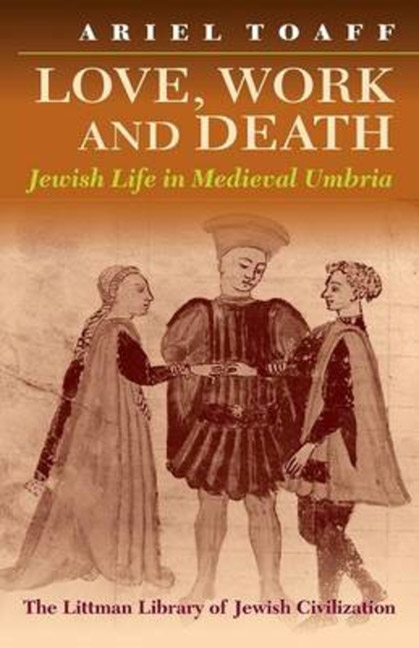Book contents
- Frontmatter
- Contents
- List of Figures
- List of Tables
- Abbreviations
- Note on Currency, Weights, and Measures
- Map showing Jewish settlements in Umbria
- Introduction
- 1 Sex, Love, and Marriage
- 2 Love of Life and Intimations of Mortality
- 3 Meat and Wine
- 4 The House of Prayer
- 5 Outcasts from Society
- 6 Witchcraft, Black Magic, and Ritual Murder
- 7 Converts and Apostates
- 8 The Pattern of Discrimination
- 9 Merchants and Craftsmen
- 10 Doctors and Surgeons
- 11 Banks and Bankers
- Bibliography
- Index
1 - Sex, Love, and Marriage
- Frontmatter
- Contents
- List of Figures
- List of Tables
- Abbreviations
- Note on Currency, Weights, and Measures
- Map showing Jewish settlements in Umbria
- Introduction
- 1 Sex, Love, and Marriage
- 2 Love of Life and Intimations of Mortality
- 3 Meat and Wine
- 4 The House of Prayer
- 5 Outcasts from Society
- 6 Witchcraft, Black Magic, and Ritual Murder
- 7 Converts and Apostates
- 8 The Pattern of Discrimination
- 9 Merchants and Craftsmen
- 10 Doctors and Surgeons
- 11 Banks and Bankers
- Bibliography
- Index
Summary
THE Jewish presence in Italy in the late Middle Ages was distinguished by the breadth of its dispersal; settlements, often limited to single families, were spread over a considerable number of city-states, walled towns, and villages, linked by poor or inconvenient communications. The Jewish population of Umbria between the fourteenth and sixteenth centuries could hardly have numbered more than 500 people, and was scattered over fifty centres of various sizes, on the shores of Lake Trasimene, in the Tiber valley, and up the slopes of the Apennines. Jewish families were often only given temporary permits of residence by the authorities in these areas. Their choice of precisely where to settle was linked to their professional skills-for example, as bankers or as managers or employees with the local pawnbroker. If they wanted to retain their Jewish identity, their social life was limited to mixing mainly with other Jews, and they were therefore cut off to some degree from the surrounding world. However, many Jews wanted to strike a satisfactory balance between their particular needs as a religious minority and the attractions of Christian society, in which they wanted to participate, and whose influence made itself felt in all aspects of their everyday life.
The problem was undoubtedly more acute for young people, and especially young men, than for those who had moved into a new locality already married and with a dependent family. Indeed, young men were aware that their very future as Jews was conditional upon their choosing a Jewish wife, as required by the religious rules by which they felt themselves bound; but their natural sexual impulses could find no release within the local Jewish microcosm, often limited to a few families. Thus ‘spontaneous’ love between a Jewish boy and girl would be, at best, extremely rare. Rather, in everyday life, it was the young Christian girls whom they met at market, in the piazza, on the town streets, and in neighbours’ houses who attracted their attention. Fashionably dressed on feast days, it was these girls who stirred up fantasies and desires. These were the circumstances where love was born and flourished, despite prohibitions and injunctions.
- Type
- Chapter
- Information
- Love, Work, and DeathJewish Life in Medieval Umbria, pp. 5 - 35Publisher: Liverpool University PressPrint publication year: 1996

